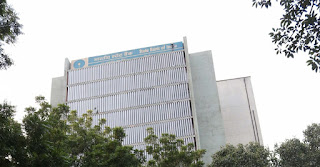Delhi pollution: Clearing a forest in order to grow a forest
It is that time of the year again—when the weather is pleasant but the city is polluted. Air quality has shown a massive decline as farmers in Delhi’s neighboring states burn rice stalks after harvest. Increasing pollution also brings along action and a change in government policies. As these come at the last minute, many do not resonate either with ground realities or with public interest. In the last fortnight, India’s capital city was treated to a bizarre act of plantation and a proposed policy change that set off a fiery debate. First the action—the Delhi forest department decided to plant saplings in the Central Ridge. To set this benign task in motion, it cleared off the existing greenery by using earth-moving equipment and then planted the saplings. In simple words, the department decided to clear a forest in order to grow a forest. The area looks perceptibly less green. The new plants, if they survive, will need at least two to three years of care and protection. And, til...

